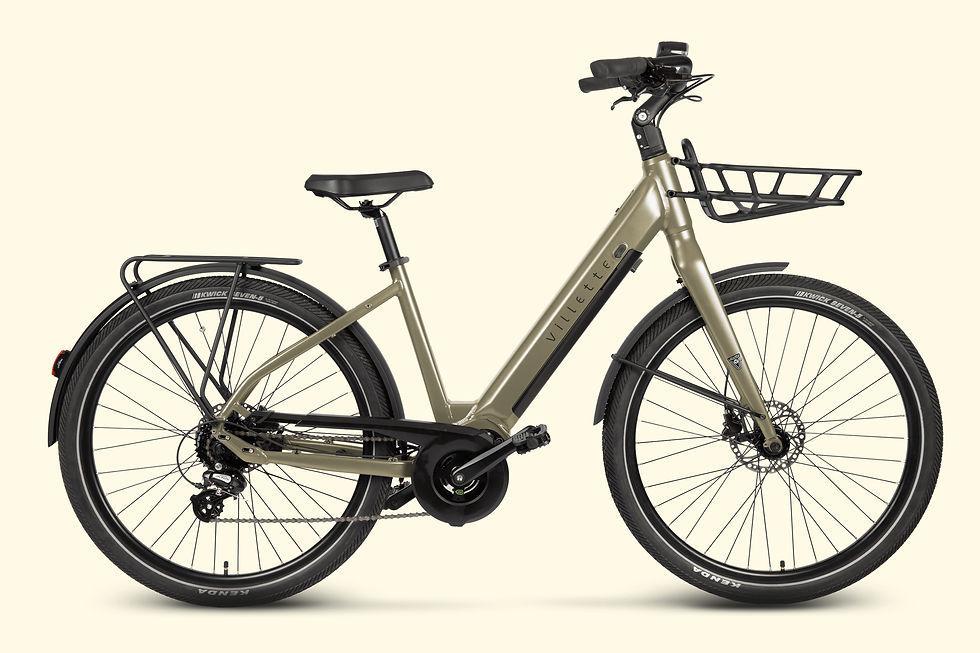
C' 25
We take pride in introducing the Villette 2025 Collection. This new collection reflects subtle urban influences and presents bicycles in stunning new colors. Every Villette ride remains a unique journey where innovation and elegance converge. Discover new horizons and experience the ultimate cycling excellence.
Villette Bikes – Affordable and Stylish E-Bikes
Welcome to Villette, the bicycle brand that combines modern design, innovation, and affordability. Our e-bikes are manufactured in Italy under the Alete Group, an experienced manufacturer with a production capacity of 1.5 million bicycles per year. Thanks to smart production and distribution methods, we offer high-quality electric bikes at exceptionally competitive prices.
Why Choose Villette?
-
Modern design – Stylish e-bikes perfect for urban life.
-
Affordable quality – Top-tier quality at an accessible price.
-
Innovative technology – From derailleur bikes to NEXUS and automatic gear systems.
-
Always in stock – Our "Never Out of Stock" policy ensures fast delivery.
-
Direct distribution – We skip expensive middlemen, so you pay less.
Where to Buy Villette Bikes?
Our e-bikes are easily available online through major retailers in the Netherlands, Belgium, and Germany. You can find us at Decathlon, Bol.com, Wehkamp, MediaMarkt, Praxis, Kaufland, and Amazon. We also collaborate with Albert Heijn and other partners for special promotions and offers.
Guaranteed Quality and Safety
Villette bikes comply with all European standards and safety regulations, such as EN ISO 4210 (bicycle safety requirements), REACH (chemical safety), and lab tests for durability and performance. Our batteries are managed using the FIFO (First In, First Out) system, ensuring you always receive a fresh and reliable battery.
Service & Warranty
Customer service is our priority. The Alete Group works closely with a specialized service organization in the Netherlands, ensuring fast and professional assistance for maintenance and warranty claims.
The Future of Villette
In 2025, we will launch a brand-new range of e-bikes to expand our mid-range market. This responds to the growing demand for high-quality yet affordable electric bicycles. Whether you're looking for an entry-level model or a more premium option, Villette has the perfect bike for you.
Discover Villette Today!
Explore our range and experience the perfect balance between style, technology, and price. Villette – Your ideal e-bike, available now.